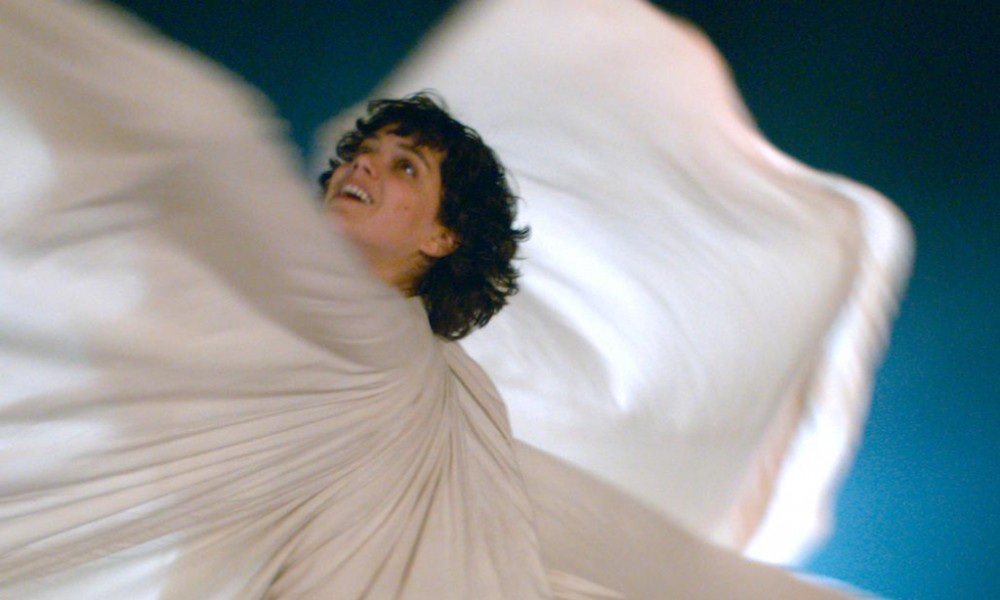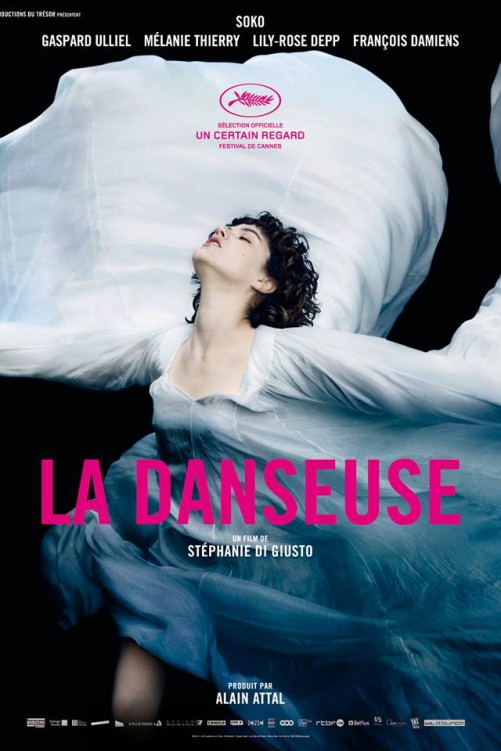La Danseuse (The Dancer)

Director Stéphanie Di Giusto brings La Danseuse to the Un Certain Regard section and it is a brisk, moving biography, an ode to creativity, perseverance, noble failure and qualified success. There is little doubt that the film strays into sentimentality and melodrama, particularly toward the end, but a powerful, muscular performance from Soko as the titular dancer imbues the film with a seriousness and intensity that mitigates the clichéd plot points. Some of the supporting cast are not quite up to the same level, but the film produces some pleasingly aesthetic moments that ably capture dance as an art form.
Loïe Fuller (Soko) is uprooted from her home in the American Midwest after the assassination of her father; she joins her mother in New York who appears to lead a convent-like institution, which preaches austerity, prudence and religious honesty. In defiance of her mother, Loïe attempts to become an actress – her first performance is an act of somnambulism that serendipitously leads her to create the Serpentine Dance, which receives the acclaim of the present audience. Her success snowballs and she leaves for Paris, where she is funded and courted strangely by a rich, depressive Count (a nondescript Gaspard Ulliel) and becomes resident at the famed Folies Bergères. From there, she is approached by the Paris Opera to produce a performance worthy of its esteem, while tutoring a new cohort of young protégés. Among these is the outrageously talented and manipulative Isadora (an interesting if awkward performance from Lily-Rose Depp), who entices and disgusts Loïe, bringing her agony and confusion. Loïe must then account for lust and vice to go along with her persistent, self-harming dedication to her art.
Despite the Parisian setting and real relationship to Loïe herself, there is an omission of Manet and Toulouse-Lautrec in the film’s imagery, and some Angela Carter-like fantasising of the period would have perhaps given the picture an added layer of interest. It is far too much of a conventional biopic for that, and the domestic scenes are presented competently but with little true imagination. Intriguing, however, is the film’s emphasis on Loïe’s desire for expensive, artistic lighting to compensate her lack of genuine talent, placed against Isadora’s wish for her remarkable ability to stand alone, unadorned. It is the singular figure of Loïe that remains an evocative image, however, and the impression of her arms outstretched, all physical pain and barely-upright stubbornness, is difficult to shift.
Joseph Owen
La Danseuse (The Dancer) does not have a UK release date yet.
Read more of our reviews and interviews from the festival here.
For further information about Cannes Film Festival 2016 visit here.




















Facebook
Twitter
Instagram
YouTube
RSS